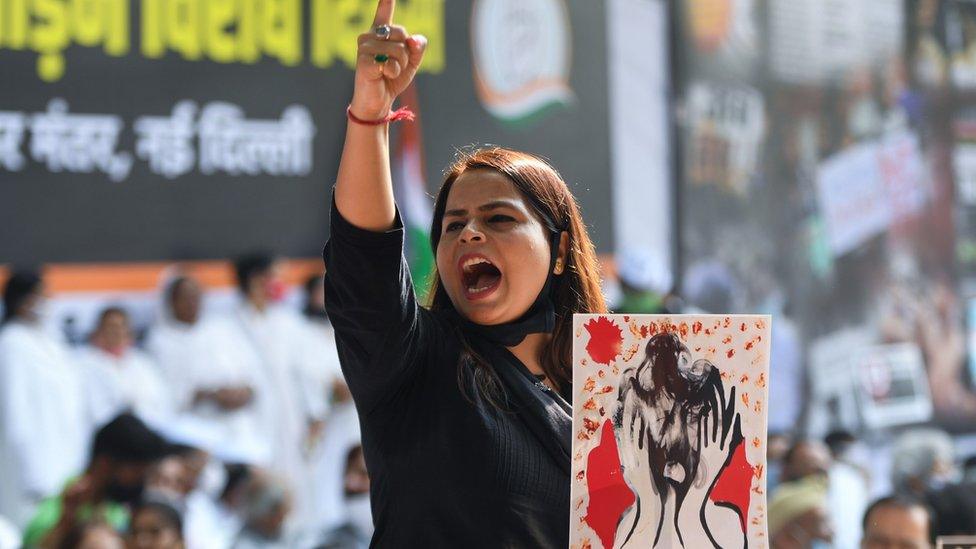Sarah Everard vigil planned as women share concerns
- Published
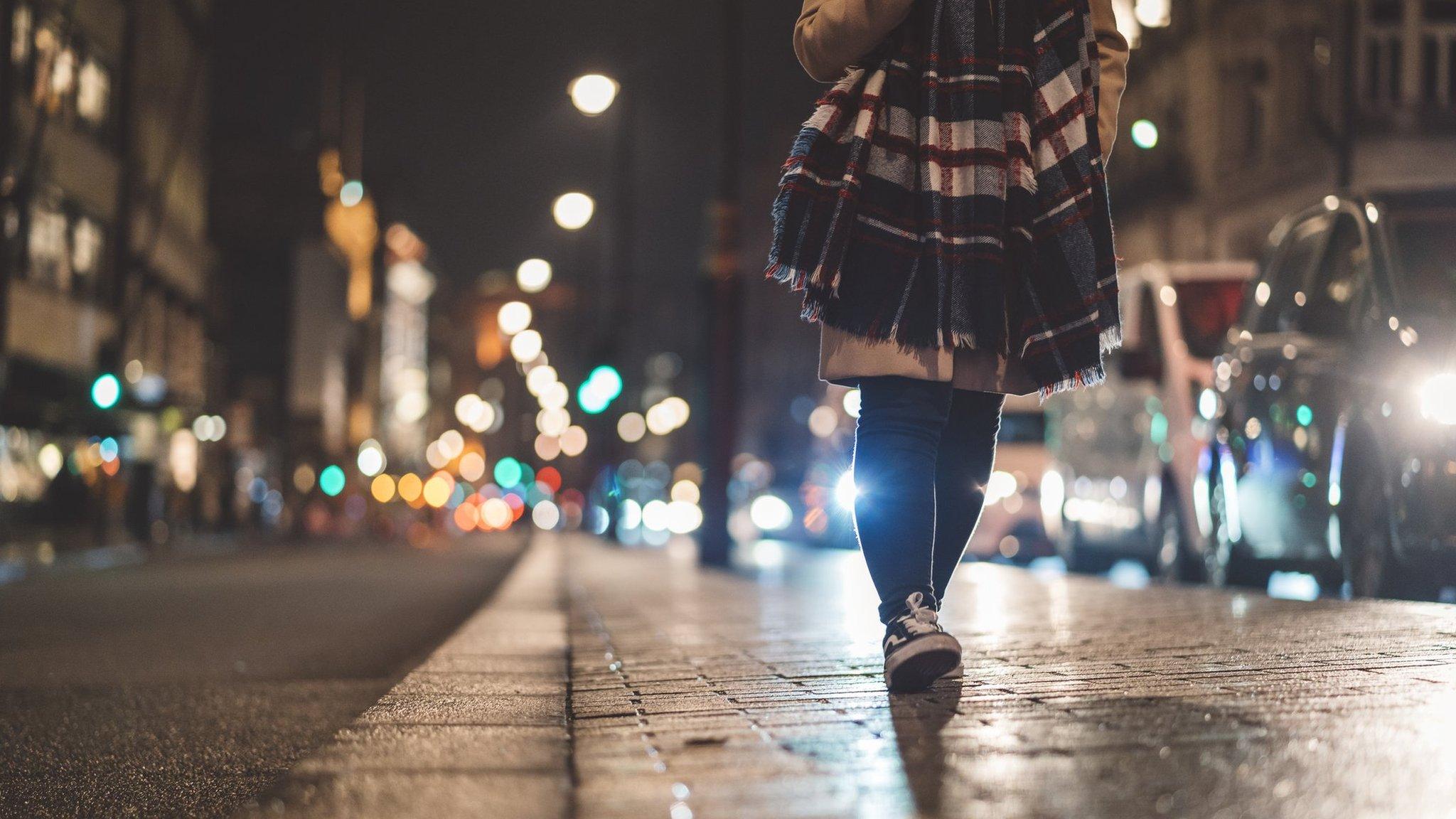
Vigils highlighting women's safety on the streets are being organised following the disappearance of Sarah Everard in south London.
Reclaim These Streets events are planned across the UK on Saturday, and in Clapham, where she was last seen.
Organisers said it was "wrong that the response to violence against women requires women to behave differently".
Thousands of women are sharing online their anxieties and anger about staying safe when alone in public places.
Following the arrest of a police officer on suspicion of Ms Everard's kidnap and murder, the head of the Metropolitan Police Cressida Dick said: "I know Londoners will want to know that it is thankfully incredibly rare for a woman to be abducted from our streets.
"But I completely understand that despite this, women in London and the wider public - particularly those in the area where Sarah went missing - will be worried and may well be feeling scared."
'Exhausting'
Organisers of Saturday afternoon's vigil on Clapham Common said local police had "told women not to go out at night this week", but they say "women are not the problem".
"This is a vigil for Sarah, but also for all women who feel unsafe, who go missing from our streets and who face violence every day."
Vigils are planned for other cities and towns on Saturday, including Cardiff, Liverpool and St Andrews.
The disappearance has prompted discussion on social media about the precautions women feel they have to take when they go out on their own.
Helena Wadia told BBC Radio 5 Live said she wrote about her experience on Twitter to highlight how common it is for women to feel unsafe.
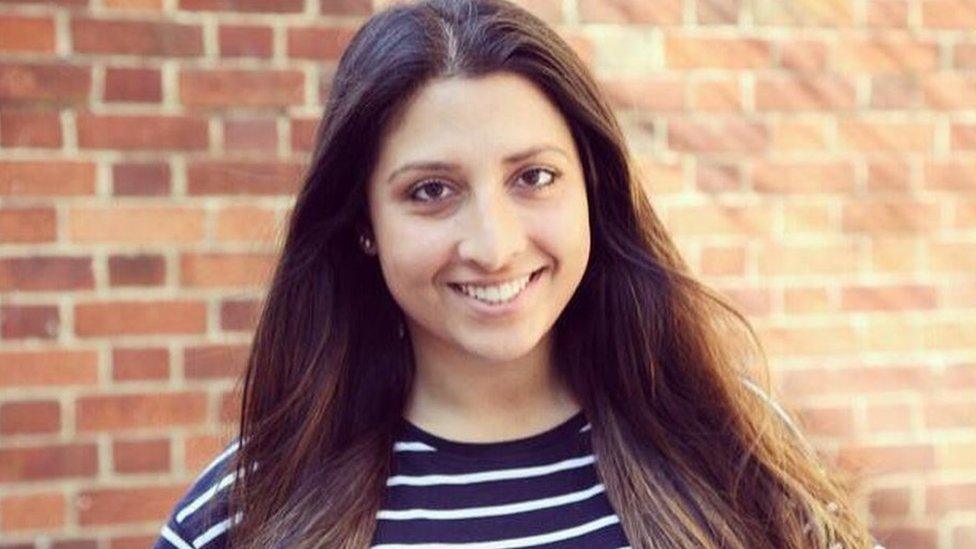
Helena Wadia said changing her behaviour in public spaces was "exhausting"
She said: "The first time I was catcalled I think I was about 12 years old. I have been self-policing since then, we moderate everything.
"Our clothing, our drinking, we get taxis where maybe we can't afford it, we hold keys between our fingers, we don't wear headphones when we're jogging, we stick to well-lit areas. It's exhausting."
Another tweet asking women if they have ever faked phone calls, changed route, or even run in fear after feeling threatened by men in public spaces has been liked more than 120,000 times.
Home Secretary Priti Patel said the concerns shared by women "are so powerful because each and every woman can relate".
"Every woman should feel safe to walk on our streets without fear of harassment or violence," she added.
'Forced to change'
Maya Tutton, who created the Our Streets Now anti-harassment campaign, told BBC Radio 4's Today programme she first experienced harassment in public at the age of 12.
"What these incidents make you do is… that they make you fear going outside and they make you feel that you are not an equal citizen to your male counterparts and that you don't have those fundamental human rights to go about your everyday life without living in fear," the 22-year-old said.
"We're so at the end of our tether with violence against women and girls never being a priority and never being an issue that we put money and resources into tackling."
Ms Tutton added: "By not putting the emphasis on the perpetrator and on really tackling that culture, what we're doing is we're not getting to the root of the problem - we are being forced to change our behaviour."
Labour MP Jess Phillips, the shadow domestic violence minister, said there should not be a message to women "where we're told what to do or what we have to do".
"The reality is that for most women they have had some sort of experience that they feel frightened of," she told the Today programme.
"Women aren't weak because of a fault in their personality, women are weak because of men's violence."
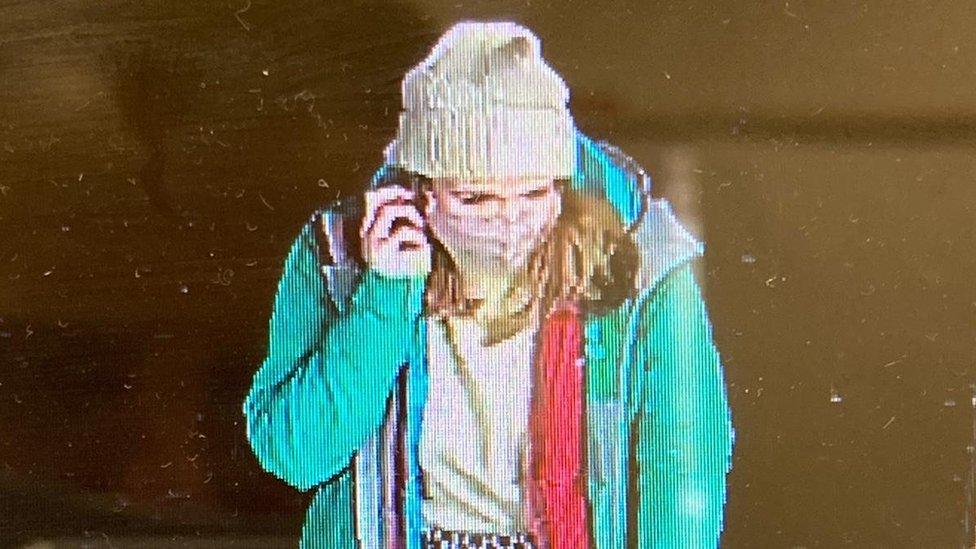
Sarah Everard walked down a busy main road in Clapham before she disappeared
As part of an International Women's Day debate in the House of Commons on Thursday, she read out the names of 118 women who have died since this date last year - where a man had been charged or convicted as the primary perpetrator.
It took more than four minutes for her to do so.
She told MPs there was currently no government study into the patterns every year of women who are killed. "Dead women is a thing we've all just accepted as part of our daily lives - dead women is just one of those things."
But, she added: "Killed women are not vanishingly rare. Killed women are common. Dead women do count."
Jess Phillips lists all women killed in the UK over the last year where a man has been convicted or charged.
Ms Phillips concluded saying that the name of Sarah Everard, not included on the list, "rings out across all of our media". "Let's pray every day and work every day so that nobody's name ends up on this list again," she said.
Julie Bindel, a campaigner on women's issues since the 1970s, said: "The message from wider society and from all police officers during these many operations on violence against women should be a message for men.
"Only men can stop male violence."
She praised a tweet from one man, Stuart Edwards, who asked if there were steps men could take to reduce women's anxiety.
Allow X content?
This article contains content provided by X. We ask for your permission before anything is loaded, as they may be using cookies and other technologies. You may want to read X’s cookie policy, external and privacy policy, external before accepting. To view this content choose ‘accept and continue’.
Marian FitzGerald, a visiting professor of criminology at the University of Kent, said while women's fear was real, statistics showed women were less likely to be murdered than men.
She said Ms Everard's disappearance "shouldn't make women any more fearful than they already were".
"Yes, the fear is real and it is always heightened when something like this is in the news. That doesn't mean to say that the risk has changed," she said.
"It hasn't changed much over many years. Women account for about a third of all murders. Men are far more likely to be murdered.
"Men are far more likely to be murdered by someone they don't know. Men are far more likely to be murdered in public places."
Asked about young women who have said they should not have to be fearful, Ms FitzGerald said: "In terms of the risk that we face, I know that the current situation is frightening... the reason why we remember these cases is because they are so rare and we should hold on to that."
In 2019-20, 71% of female murder victims were killed at home compared to 36% of male murder victims. Around one in 10 of female murder victims were killed on the streets.
The World Health Organization reported this week that one in three women across the world have been subjected to physical or sexual violence in their lifetimes.
Support and resources for sexual abuse and violence and emotional distress are available via the BBC Action Line
Related topics
- Published11 March 2021
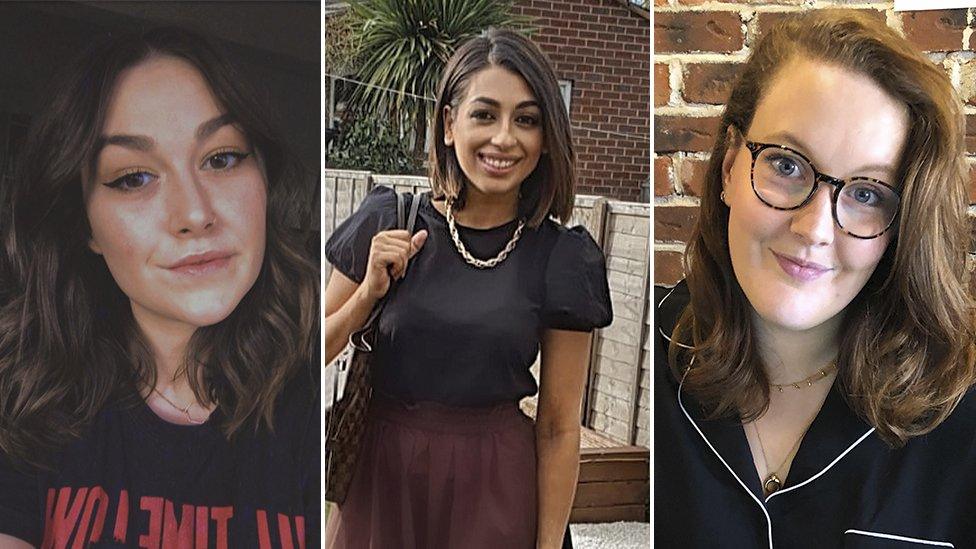
- Published9 March 2021
